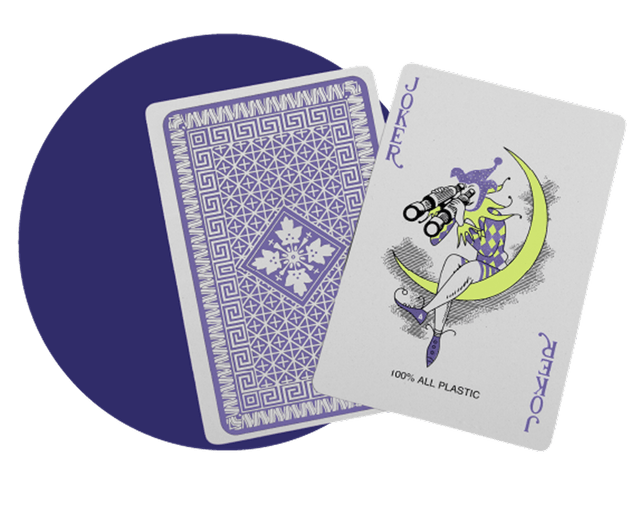
AI and the Retail Marketer’s Future
How AI transforms strategy and processes, driving the adoption of Positionless Marketing
Exclusive Forrester Report on AI in Marketing

The hospitality industry is back. Severely impacted by COVID the last two years, it is on the cusp of a long-awaited comeback. With millions of us reaching for our passports and planning a long-overdue getaway, the hospitality sector is expected to grow from $3.9 billion in 2021 to a whopping $4.5 billion this year. Savvy hoteliers are on standby, ready to elevate and optimize the guest experience, cultivating valuable, long-term connections, and boosting the bottom line - and doing a substantial chunk of it through, you guessed it, their mobile app!
We love our hotel apps. From mobile check-in and keyless room entry to mobile payments and access to concierge services, those hoteliers which have been quick off the starting block to deliver a delightful guest experience through their app are already enjoying higher guest satisfaction rates and increased repeat bookings. But it’s not just ease of check-in, room entry, and concierge services that guests are looking for: g
In 2022, travelers expect their hotel of choice to treat them as valuable customers and not just as a number in a vast sea of other numbers. For the hotelier looking to create valuable, long-term connections with guests, placing personalization at the very heart of almost everything they do is critical to success, paving the way to satisfied guests, profitability, and sustained growth. This year it’s proximity marketing that hotel brands are turning to so they can deliver - with great results:
Let’s look at how hotels can use proximity marketing to create hyper-personalized guest experiences, and in the process foster meaningful, valuable connections that put the smart hotel brand on the front foot and keep customers returning year after year.
Just a 5-minute wait at check-in can reduce guest satisfaction by 50% (Hospitality.net) but worry not, we have some ideas to help reduce wait times by up to 20%.
Use automated check-in courtesy of geofencing. By utilizing geofencing - a virtual ‘fence’ around a specified location - hoteliers can provide guests with the option to check in as soon as they’ve landed (or when they’re nearing the hotel) by sending a push notification to their smartphone that takes them to the relevant check-in screen in the hotel’s app.
But there’s another benefit to location-based check-in. As well as providing a hassle-free experience for guests, the use of location-based technology means hotel staff can be notified when guests are on their way, giving them the opportunity to prepare for their arrival (being there to ‘meet and greet’, having room keys available if required, or even having a welcome drink at the ready for that ultra-personal touch!).
The mystery of the missing hotel room keys. Where are they? Who took them? What do they want? It might sound like a first-world problem, but addressing the almost daily frustration of lost keys can go a long way to elevating the guest experience.
So when a guest has checked in, and for the duration of their stay, beacon technology can detect when guests are near their room via their smartphone and unlock the door as they approach - a true micro-moment that really does add value!
Once in their room, that same technology can deliver all manner of wonderful a-ha moments - from switching on the lighting when guests enter, to turning on the air-con, to setting just the right room temperature, the entire in-room experience can be elevated from mediocre to marvelous via the humble beacon, helping to make the guest experience memorable and elevating the chances that they’ll be back next year.
An immersive guest experience creates loyal customers, expanding the reach of your brand as they share their experience, and helping increase revenues as a result.
Beacons inside hotel rooms can identify when guests are back at base, and, coupled with additional insights courtesy of your analytics platform, provide the perfect offer for in-room services. Think relevant menu options, mini-bar offers, discounts on promoted tv movies, or in-room spa treatments - all via their smartphone.
And if brands are feeling particularly innovative, providing additional content such as video and images alongside offers can be a hyper-effective way of driving conversions. As always, the key is personalization - the more insights gathered on individual guests, the more tailored offers can be.
More and more hotels are using geofencing and beacon technology to help guests find what they’re looking for via their smartphones without having to roam endless corridors and fire escapes. Using beacons, hotels can provide their guests with digital maps that track their location in real-time, and deliver them to their desired destination, minus the frustration. The technology could even be used to introduce guests to new areas of the hotel along with relevant offers, such as fitness suites, spas, and stores.
The optimum guest journey is made up of many delightful aha-moments, which when woven together create the ultimate travel experience. The key to success? Responsive, personalized, valuable interactions that meet individual needs, and introduce them to new experiences. Location-based targeting can help deliver these critical micro-moments.
By placing beacons in the spa area, by the pool, or in the hotel bars and restaurants, hotels can identify which areas guests are visiting so they can send offers that are finely tuned to meet guest needs.
For example, a special dining experience when guests are in the vicinity of the hotel restaurant, or a 2-4-1 cocktail promotion when they order room service. Location-based marketing also provides opportunities to partner with local businesses and take advantage of geofencing so when guests are nearby, say, a local restaurant around dinner time, they can be sent a promotional push notification which to use in said restaurant.
Check-out courtesy of proximity marketing is the perfect opportunity to give your guests a frictionless send-off, and if you’re smart, an offer or two to help them remember you by, say, a discount for the taxi to the airport, a drinks coupon they can use at an airport cafe once they get there, or a coupon to use for an extra night free when they book their next stay.
The important thing to remember? Yep - personalization. If your analytics tell you that a guest was a frequent spa-user during their vacation, you could send them a voucher for spa products to take home with them. Just a thought. However you choose to thank your guests, make it memorable and valuable - guests and your bottom line will thank you
With increasingly intense competition, ever-smarter innovations, and travelers that tend to follow the best deal rather than a particular brand, it’s never been more critical to reach customers with hyper-personalized content - aka, the right offer, at the right time, and in the right place.
Proximity marketing enables the savvy hotel brand not only to stand out in an ultra-competitive marketplace but to build valuable, meaningful connections with customers that foster loyalty over the long term. If you’d like to find out more about how we can help when it comes to proximity marketing, let’s get the conversation started!
Exclusive Forrester Report on AI in Marketing
In this proprietary Forrester report, learn how global marketers use AI and Positionless Marketing to streamline workflows and increase relevance.


Rony Vexelman is Optimove’s VP of Marketing. Rony leads Optimove’s marketing strategy across regions and industries.
Previously, Rony was Optimove's Director of Product Marketing leading product releases, customer marketing efforts and analyst relations. Rony holds a BA in Business Administration and Sociology from Tel Aviv University and an MBA from UCLA Anderson School of Management.


